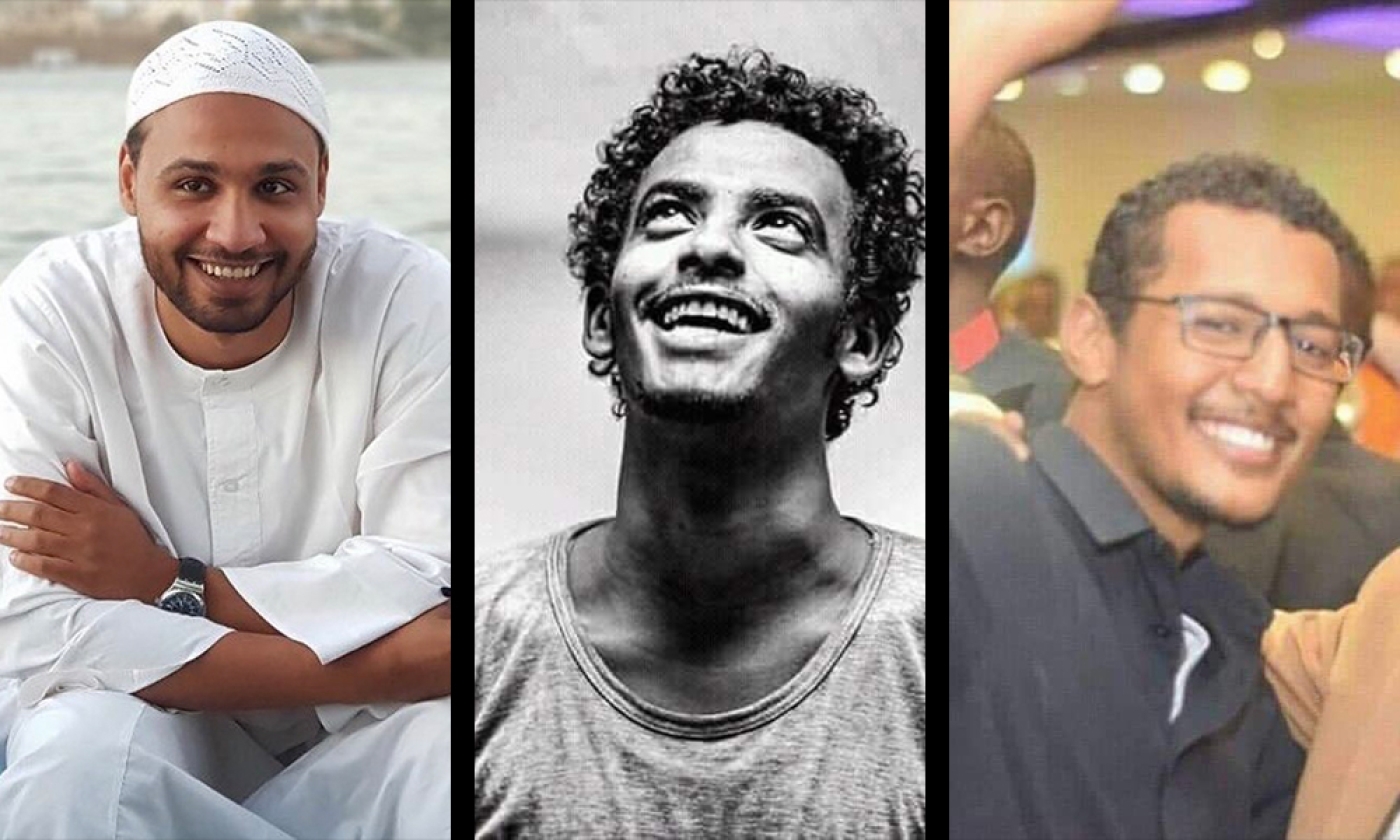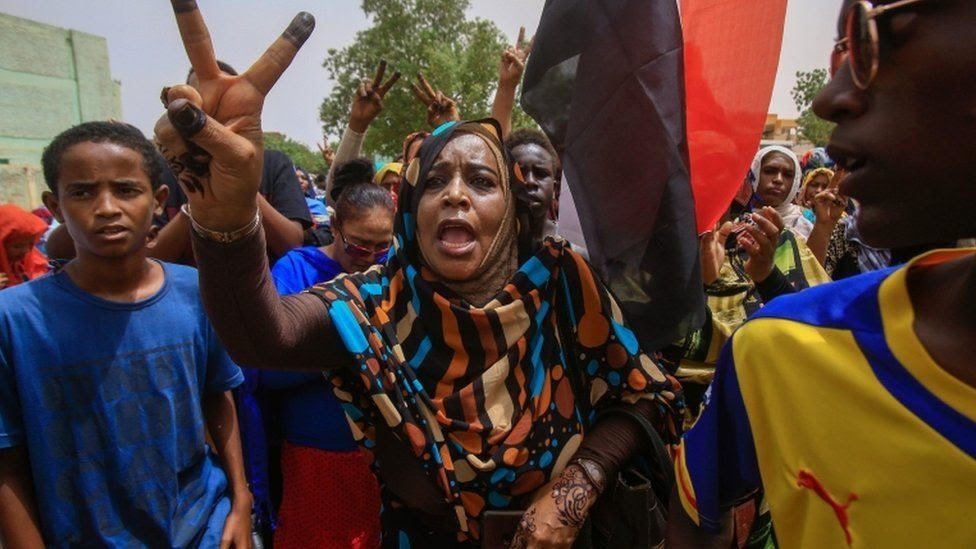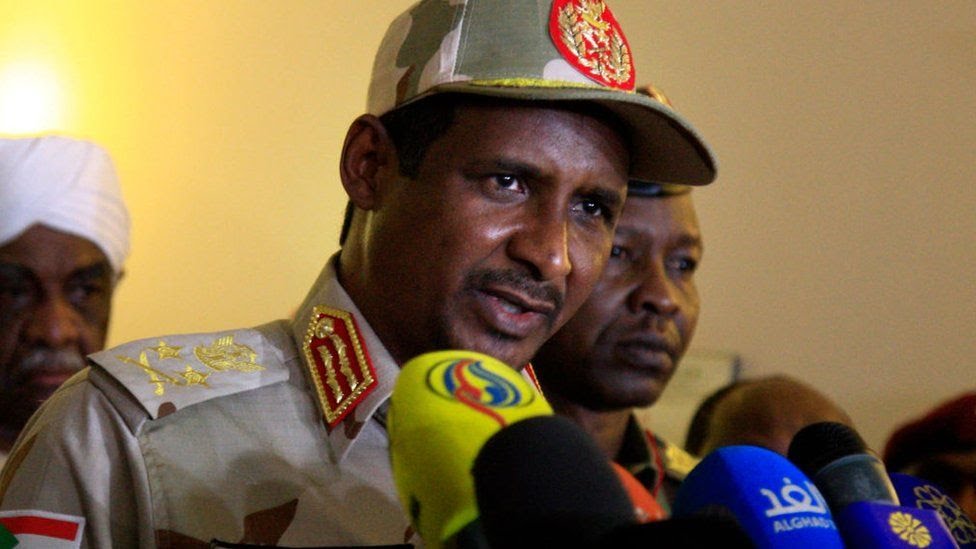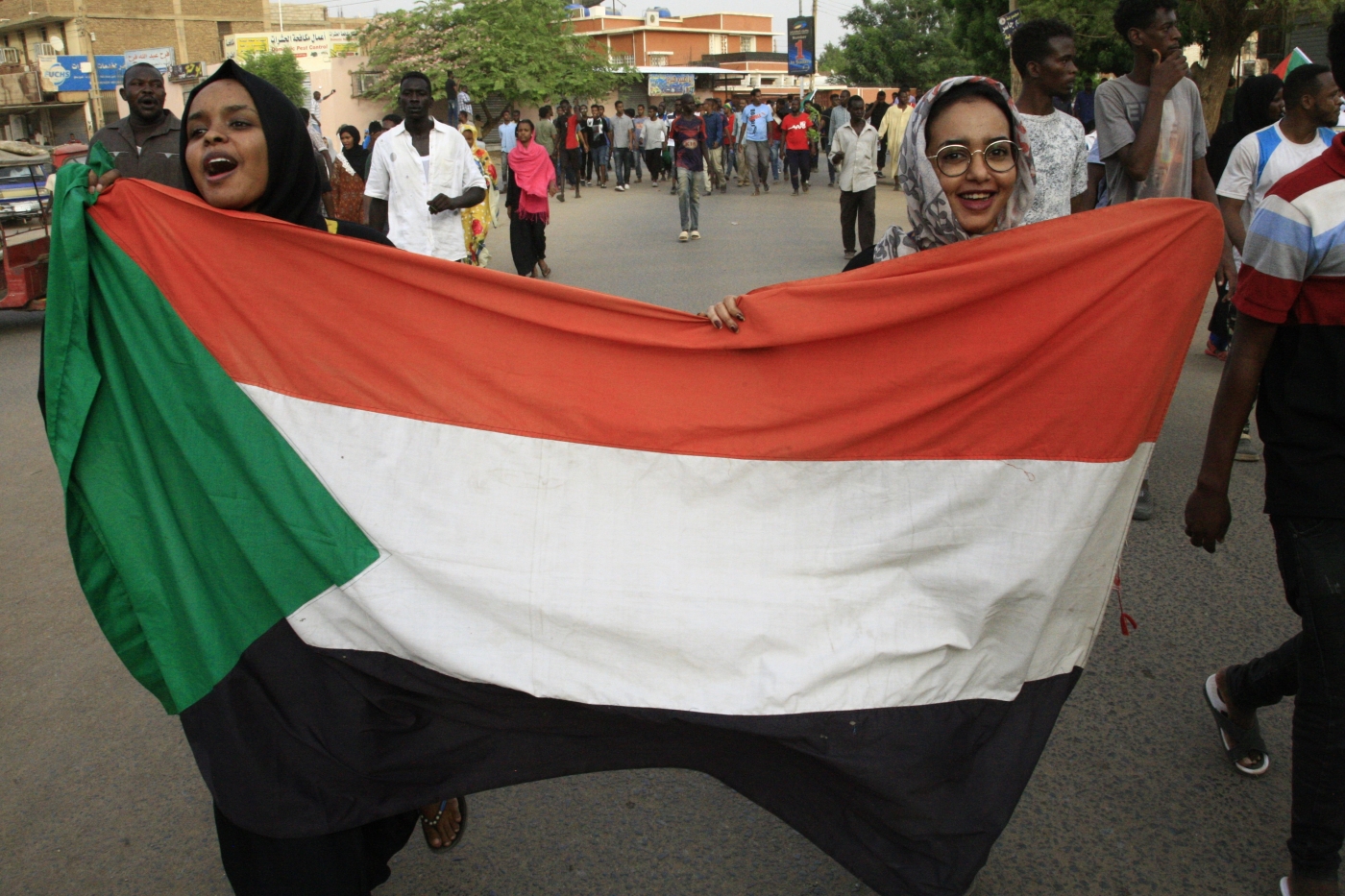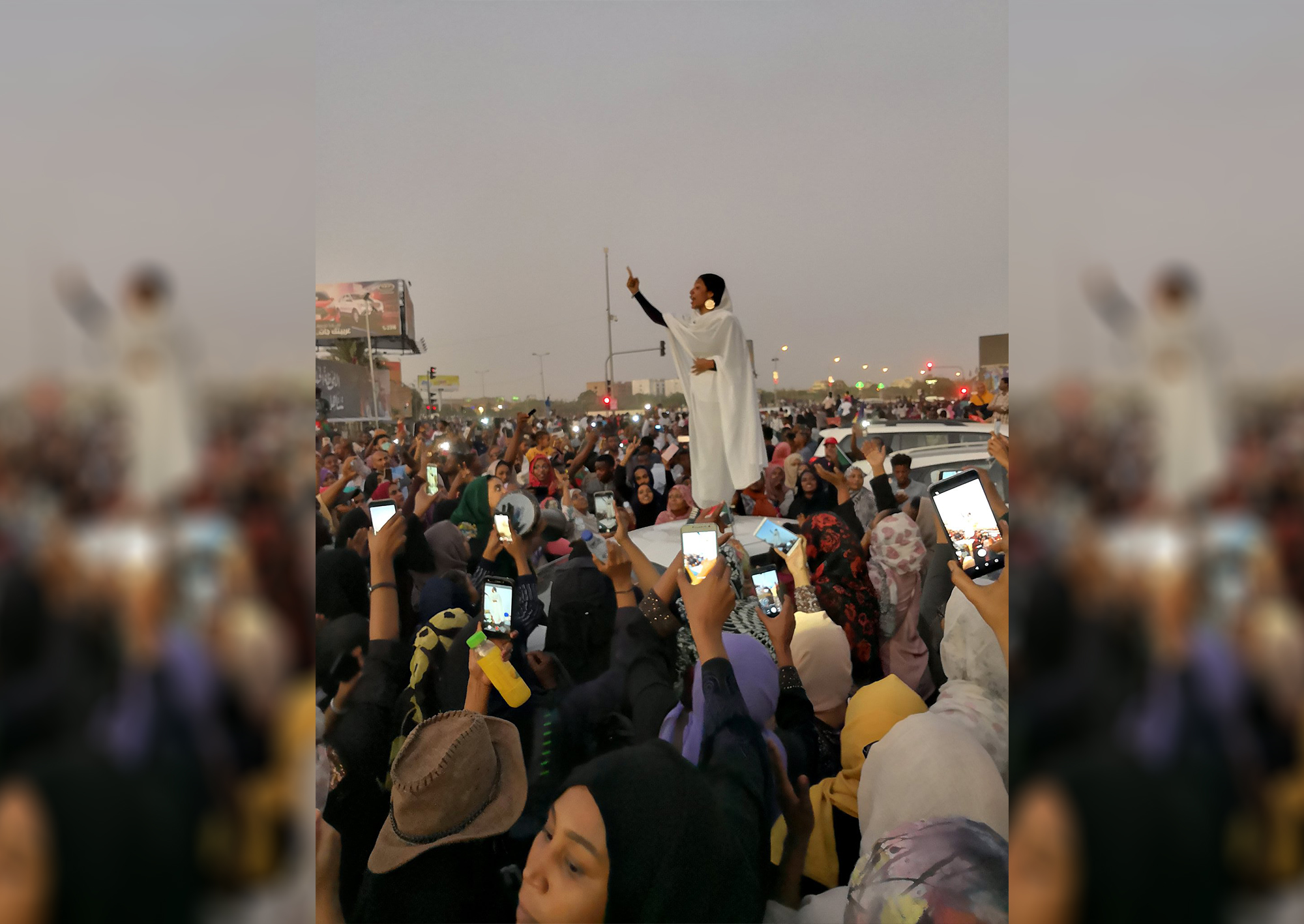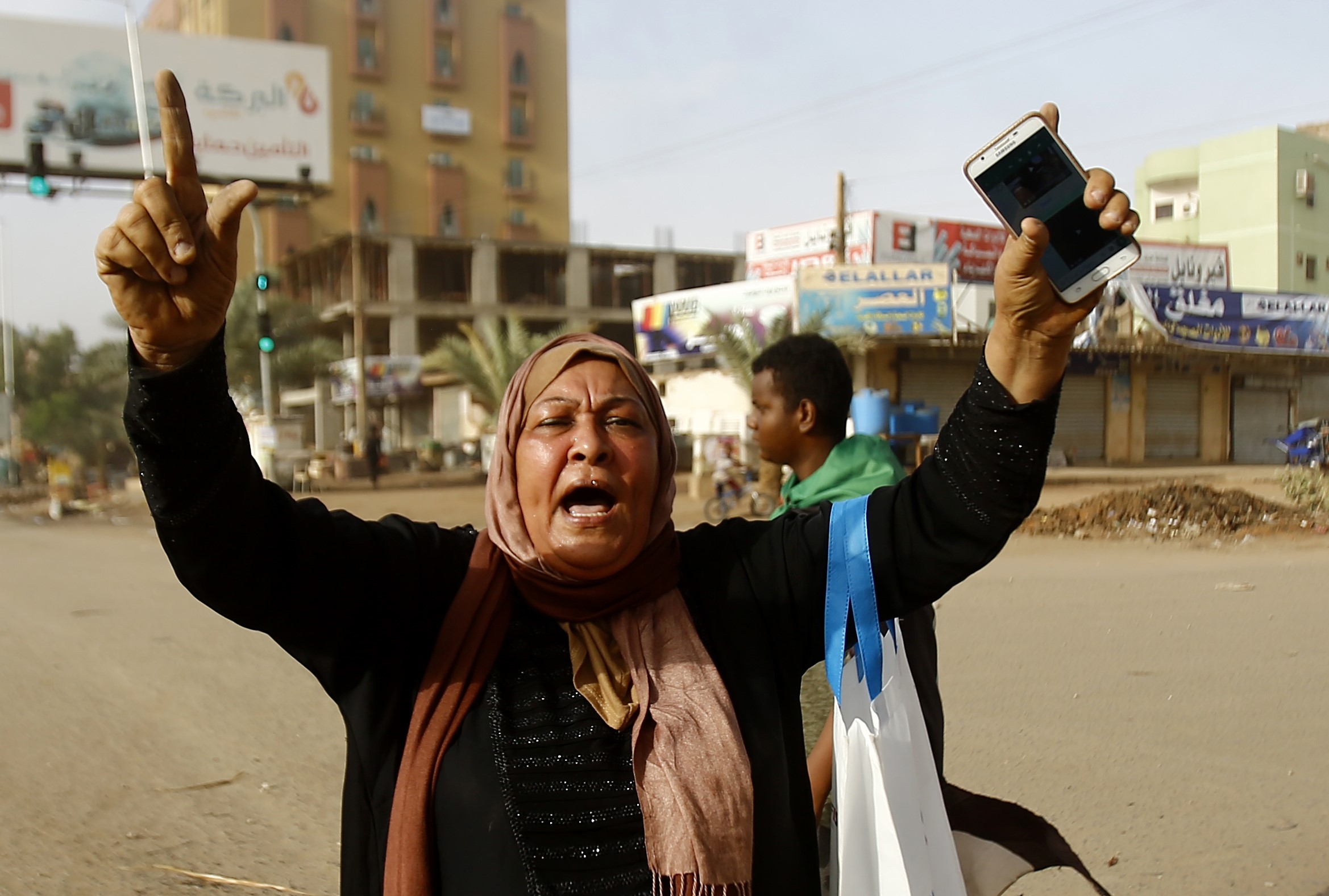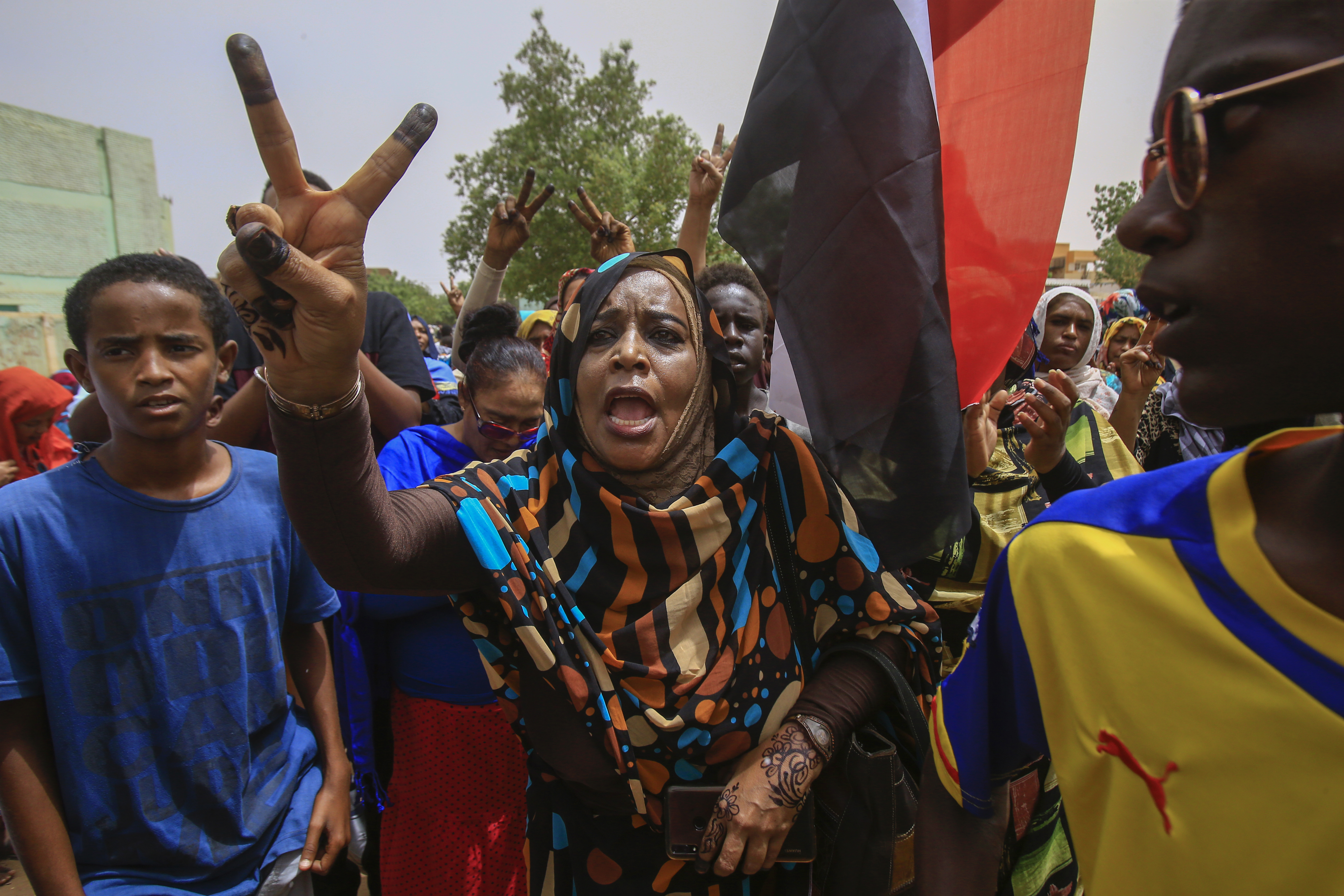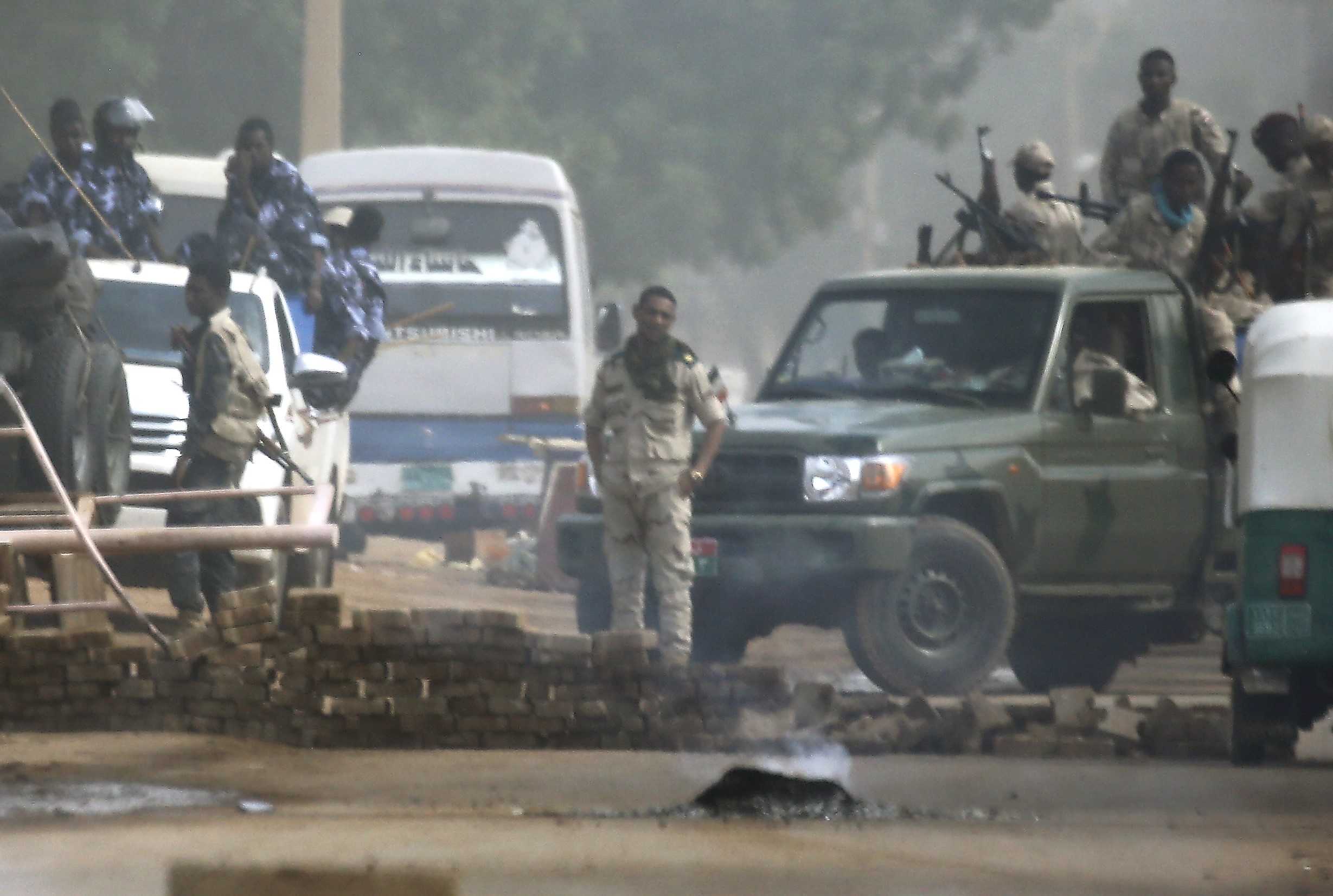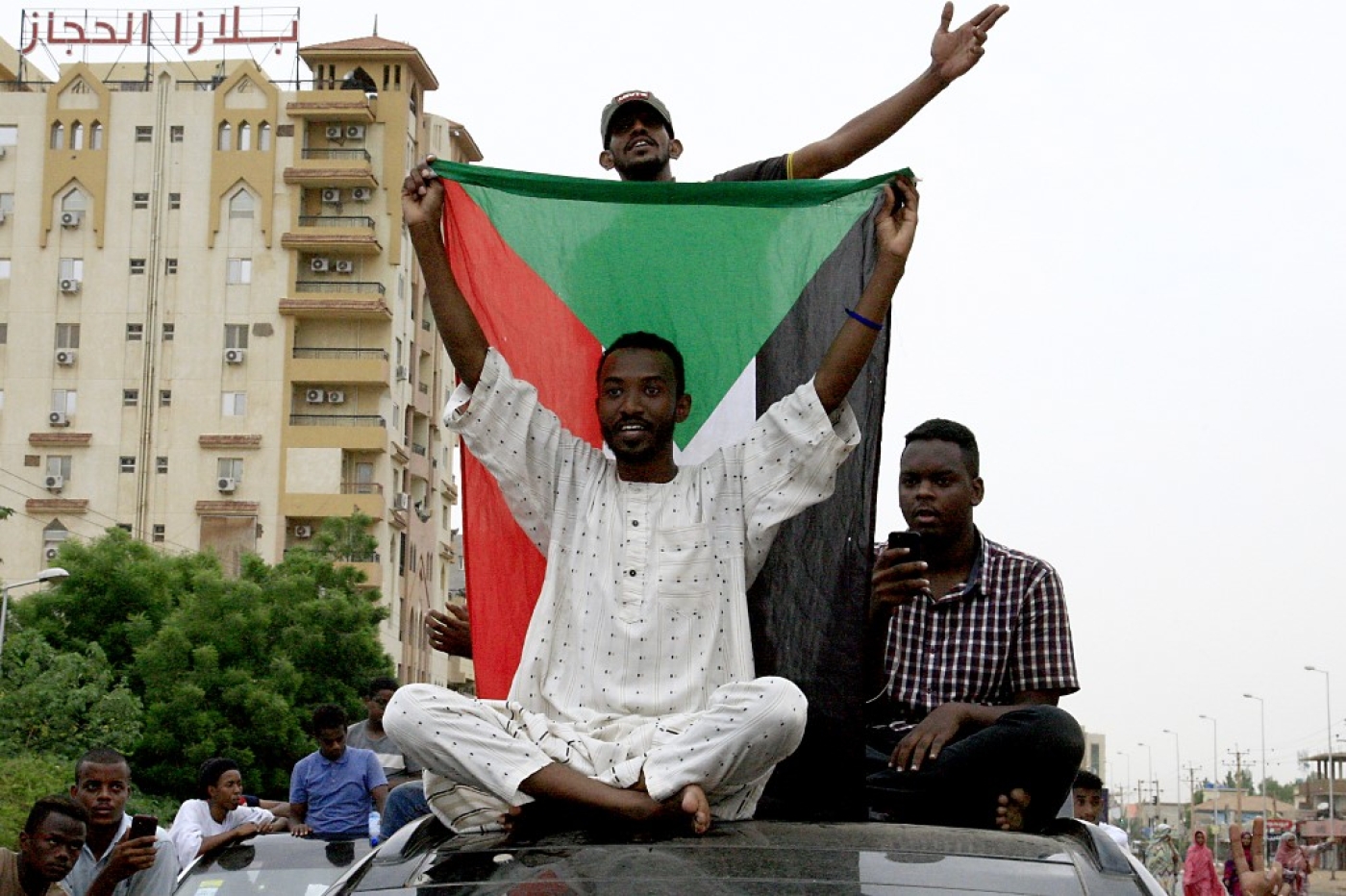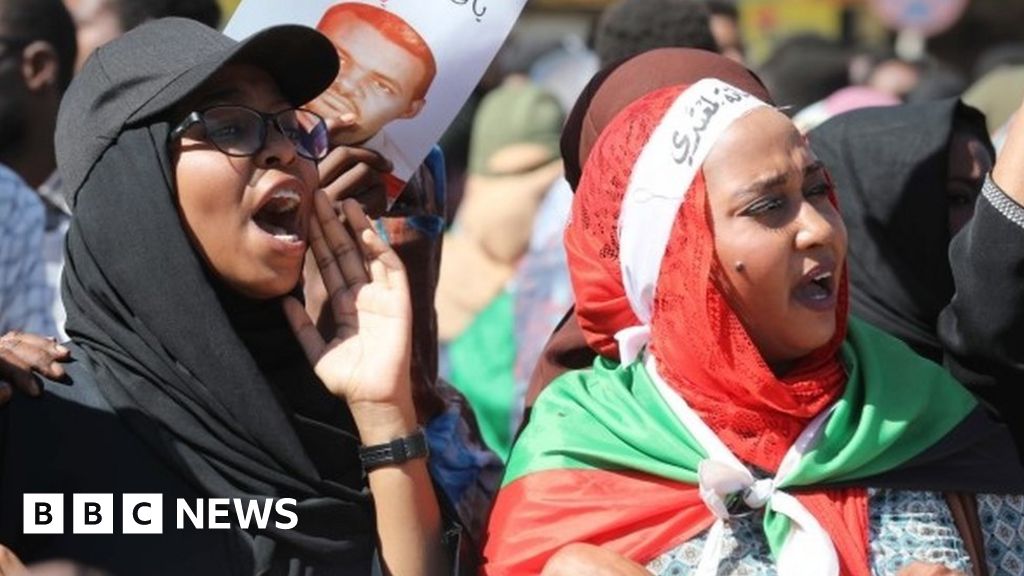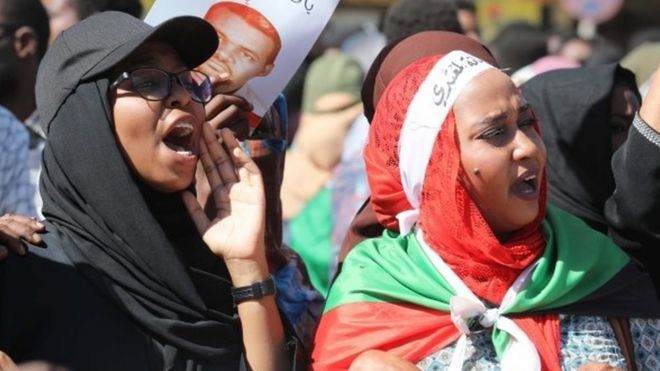
A group of Sudanese women protest against the military junta in Khartoum, Sudan, on April 26, 2019.
Photo: Fredrik Lerneryd/Getty Images
https://theintercept.com/2019/06/20/sudan-crisis-trump/
It was 43 years ago, almost to this very day, that at least 176 civil rights protesters, most of them young students, were slaughtered in Soweto during a brutal massacre by the white supremacist government of South Africa.
That was the single deadliest day of the apartheid regime. When my family and I lived in South Africa in 2014, we quickly learned that June 16 is still a national day of mourning there. It’s called Youth Day, and it is literally a federal holiday.
In Sudan, June 3, 2019 will now be that day. Earlier this month, at least 100 young civil rights protesters were shot or bludgeoned to death in Khartoum; many of their bodies were tossed into the Nile River. Hundreds of other protesters were shot or critically injured. Experts believe that at least 70 women were sexually assaulted. Businesses were ransacked. And the space that the protesters were occupying outside of the capitol was cleared.
Less than two months earlier, Sudanese President Omar al-Bashir, a long-indicted war criminal, stepped down in disgrace after nearly five months of protests over economic conditions that had brought the entire country to a halt. The protesters were right to call for his removal. But what followed was painfully predictable. The military, led by many men who for generations proudly did the work of a war criminal, took over the government and started cracking down on the protesters.
The protesters were calling for a civilian-led government. Soon, the military cut off all internet services to prevent them from communicating with each other and with the outside world. Then the military cut off cell service. But the sit-in demonstrations continued. So then the military ordered armed forces to clear the protesters out, which led to the June 3 massacre. The military has even admitted it.
For months, the Trump administration has said and done virtually nothing. One could reasonably argue that it’s better to keep Donald Trump far away from Sudan. Hell, he might love what the military is doing there. With his penchant for dictators and brutal strongmen, it’s not like Trump would identify with civil rights protesters calling for free and fair elections. That’s not on-brand at all. This administration has proven itself to be consistently cruel to all people of color who seek refuge from dictators here or abroad. And that belies the more disturbing point. The world is learning that cruelty to human beings is not a bug in the Trump philosophy on governance, it’s a feature.
The Trump administration has loudly signaled to the world that it doesn’t give a damn about Saudi Arabia’s crown prince, Mohammed bin Salman, ordering the torturous murder of Jamal Khashoggi, a Washington Post journalist, or a North Korean dictator executing whoever irritates him on any random day of the week. Maybe you missed the news, but earlier this week, Israel named a whole damn town after Trump. It’s literally called “Trump Heights.” But of course they would. Israeli snipers shot a staggering 1,350 people last May — killing women, children, journalists, and nurses — and the U.S. government proudly relocated its embassy to Jerusalem at Trump’s behest. Trump didn’t do as much as bat an eye at the slaughter of so many civilians.
Think about it for a moment. What could the United States say to Sudan with any level of seriousness or moral ground to stand on? Nothing! Whether or not that calculus went into the decision for the Sudanese military to order the wholesale slaughter of civil rights protesters is unknown, but this much is clear: They knew, as the world knows, that the Trump administration has no inclination whatsoever to do anything substantive about such abuses.
All of this has made it difficult to figure out exactly how well-meaning, everyday people around the world can actually help bring safety and democracy to Sudan — especially since the internet remains cut off and social media virtually inaccessible nationwide. This may sound nebulous, but the first thing I ask people to do is to simply make a place in their hearts and minds to actually care about the human rights abuses in Sudan. People are understandably suffering from compassion fatigue. So much is wrong in our nation, and wrong around the world, that it can be legitimately difficult to make room for one more crisis.
Once you make up your mind that you are going to care and stick with Sudan, you need to follow, read, and amplify the voices either on the ground or seriously in the know. Here’s one person to follow. And another. And another. And what you will learn from them about Sudan will be immensely richer than anything I could ever tell you. I’m learning just as much as you are, but this much I know: I won’t turn my head and pretend this abomination is just a bad dream. It’s very real.
The current state of American foreign policy will have to be completely overhauled (I mean torn down to the studs) and reimagined in order for the United States to actually be able to play a positive, substantive role in such a conflict. Of course that will mean that the president of the United States can’t be a superfan of brutal dictators and state-sanctioned violence against citizens calling for civil rights and human rights. But it also needs to mean that presidential candidates and congressional leaders have to express more courage, clarity, and consistency on the human rights abuses of “allies” like Israel. The words of Martin Luther King Jr. ring true here: “Injustice anywhere is a threat to justice everywhere.”
The most prominent leaders in our nation rarely seem to operate from that philosophy. It’s easy to imagine that they are as overwhelmed by the state of the nation as the rest of us, but the current crisis in Sudan, and the historic abuses and carnage suffered there, simply have not gotten the attention it deserves. When everybody is in campaign mode, trying to give red meat to their base and focusing on domestic policy issues, it just seems like the crisis in Sudan gets squeezed out. Our job is to make sure that doesn’t happen.


